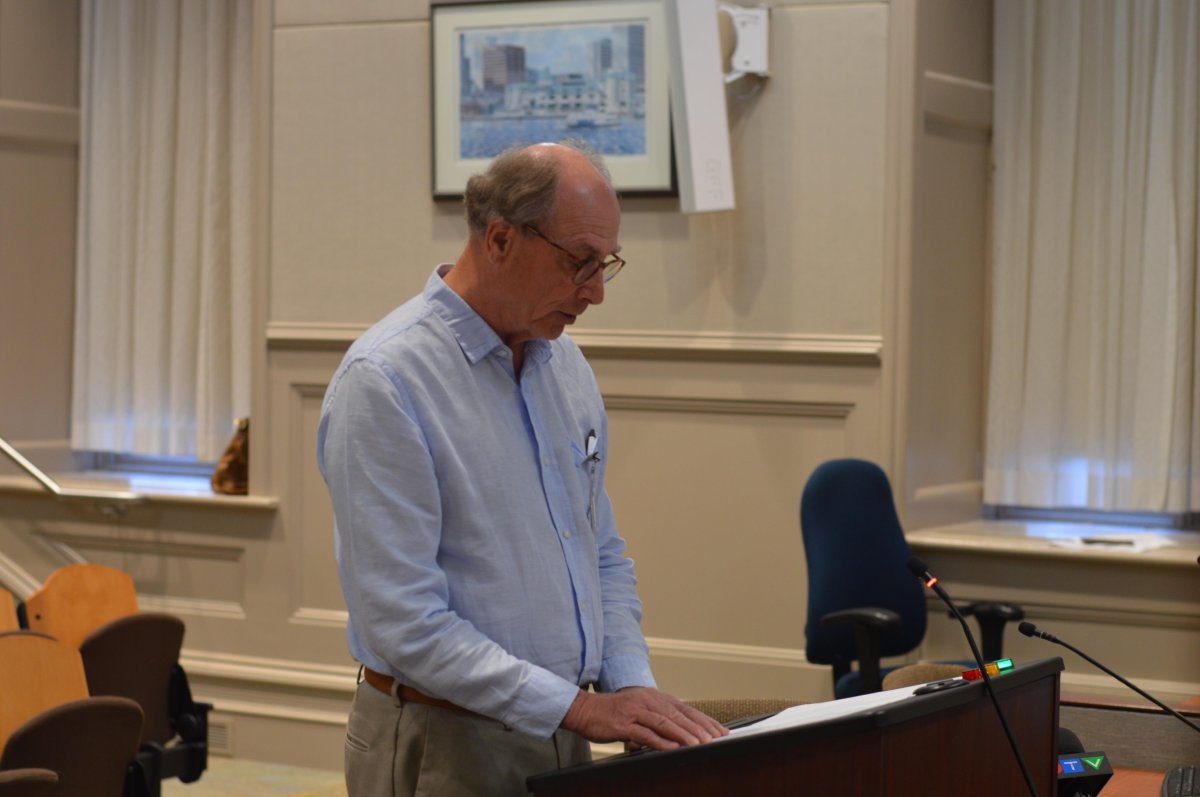One Halifax community group began its public information campaign on Tuesday as Nova Scotia gears up to regulate short-term rentals next year.

Neighbours Speak Up — an organization based out of Halifax’s north end — lobbied the Halifax and West Community Council on Tuesday about their concerns with short-term rentals, which are often offered through online platforms like Airbnb.
The group told community council that it had three main concerns around the rise in popularity of short-term rentals.
Their first concern is that the neighbourhood is disrupted when short-term rentals appear.
William “Bill” Stewart, a spokesperson for Neighbours Speak Up, told council that since no one permanently lives within the property, it often falls to neighbours to “manage” the property.
As an example, he said that the Airbnb property on his street in the Hydrostone area has had multiple visits from police due to noise complaints and parties.
Second, Neighbours Speak Up raised concerns about the “hollowing-out” of neighbourhoods.
Stewart says the massive market in Nova Scotia for short-term rentals — revenue in the province has increased from $1.115 million in 2015 to $70.870 million in 2018, according to Statistics Canada — has led to some buildings being developed solely for short-term rentals rather than as long-term rental properties.
That, in turn, shrinks the actual number of people living in the neighbourhood.
Waye Mason, councillor for Halifax South Downtown, said that full time short-term rentals don’t make him feel comfortable.
“When you build a three-unit building in north end just for Airbnb, I don’t think that’s something we want to see,” said Mason.
WATCH: Short-term rentals seen as potential problem for Halifax neighbourhoods

Finally, the group says they have concerns over the depletion of housing stock in the municipality due to short-term rentals.
According to data from the Canada Mortgage and Housing Corporation, the vacancy rate in Halifax has been steadily decreasing since 2014, when it was 3.8 per cent.
In 2018, the vacancy rate in Halifax fell to 1.6 per cent, the lowest in nearly 20 years.
The group says the growing housing crunch is due to the rise in popularity of short-term rentals.
Councillors seemed generally receptive to the groups’ concerns.
Mason said the topic of short-term rentals has been one he’s hoping council will move to address in the near future.
“Short term rentals have become a really big issue in specific places,” said Waye Mason.
“I don’t feel it appropriate to use online websites to get around commercial zoning. We have those for a reason.”
READ MORE: Should Canadian cities ban Airbnb and other home-sharing platforms?
Lindell Smith, councillor for Halifax Peninsula North, mentioned that he’d heard anecdotally that people have been evicted from buildings to make way for full time short-term rental properties.
He said that the municipality has talked with Airbnb, municipal staff and the existing hospitality industry and that they all say regulations are needed.
“I think we’re all on the same page, but I think it’s about getting after those people who are skirting the rules,” said Smith.
The presentation was information-based and required no action by the community council.
But Smith said that municipal staff are already working on a report on the subject. The committee moved to pass along the presentation by the Neighbours Speak Up to municipal staff.
Stewart said after the meeting that he was happy about the response by the committee, adding he’s happy to hear that municipal staff are working on their own report.
“As councillor Mason and councillor Smith indicated, they’re getting some concerns,” Stewart said. “I think people are looking for some kind of regulations — it’s a bit of a wild west out there.”
- Alberta to overhaul municipal rules to include sweeping new powers, municipal political parties
- Grocery code: How Ottawa has tried to get Loblaw, Walmart on board
- Military judges don’t have divided loyalties, Canada’s top court rules
- Norad looking to NATO to help detect threats over the Arctic, chief says




Comments